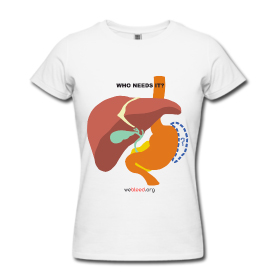
September is ITP Awareness Month
9/1/2015; Posted by: WeBleed Staff
Its September, and along with the weather cooling off across most of the US, it is also ITP Awareness Month. The Platelet Disorder Support Association (PDSA) designated September as ITP Awareness Month in 2010 and encourages people to learn more about ITP, share their own personal experiences, and to “Sport Purple for Platelets” to show support for those living with ITP.
So, what is ITP?
ITP is an acronym for Idiopathic (Immune also used) Thrombocytopenia Purpura.
Well, what does that mean?
Idiopathic – adjective, relating to or denoting any disease or condition that arises spontaneously or for which a cause is unknown
Thrombocytopenia – noun, a deficiency of platelets in the blood; causing bleeding into tissues, bruising, and slow clotting after injury
Purpura – noun, a rash of purple spots on the skin caused by internal bleeding from small blood vessels
ITP occurs when a person’s immune system starts producing antibodies that destroy platelets within their blood stream. A platelet is a small colorless cell that circulates within the blood and binds together with other platelets to form clots when they recognize a damaged blood vessel. Patients with ITP often have unexplained bruising (purpura).
What causes ITP?
The cause is unknown, hence the name “Idiopathic”…we do know however that women are affected by ITP more than men and that many children develop ITP after a recent viral infection like the mumps, measles, or a respiratory infection.
What are the signs/symptoms of ITP?
-Unexplained, excessive, or easy bruising
-Petechiae, pinpoint sized rash of reddish-purple spots that usually appear on the lower legs
-Prolonged bleeding from cuts, of special concern is bleeding into the brain – which can be fatal
-Spontaneous nosebleeds
-Bleeding gums after dental work or brushing teeth
-Blood in urine or stools
-Unusually heavy menstrual flows
-Fatigue
When should you see a doctor?
You need to get to your primary care provider if you or your child are experiencing abnormal bleeding/bruising or you notice any petechiae. For women, it is important to seek medical attention if you notice a significant increase in bleeding during your menstrual period as this could be a sign of ITP or another bleeding/clotting disorder.
ITP is a diagnosis of exclusion which simply means that your doctor must rule out a lot of other possibilities that you may have a low platelet count.
Are there complications?
Sure, but that is true of any disease or disorder. While death from ITP is rare, it is a possibility. Most of the complications outside of bleeding and bruising actually develop as a side-effect of treatment.
Treatments may include corticosteroids (which can lead to osteoporosis, cataracts, and type 2 diabetes) and surgery to remove the spleen (splenectomy).
Ok, so what now?
Well, for more information, we suggest you check out PDSA’s website. Of course you can check back here at webleed.org during the month of September and look for the purple #ITPaware triangle on all our related stories.
Wear Purple on September 25th, 2015 to show your support for those with ITP.
You can also follow the #ITPaware hashtag on twitter here: https://twitter.com/hashtag/itpaware.
WeBleed is also selling ITP themed tees, tanks, and sweatshirts from our store. All proceeds from these sales will be donated to PDSA.






1 Comment
[…] Cliffs East Primary, where Sellens works, hosted a Walk-a-thon this past Thursday to celebrate ITP Awareness Month and to support Sellens. Students were treated to a BBQ lunch and encouraged to wear […]